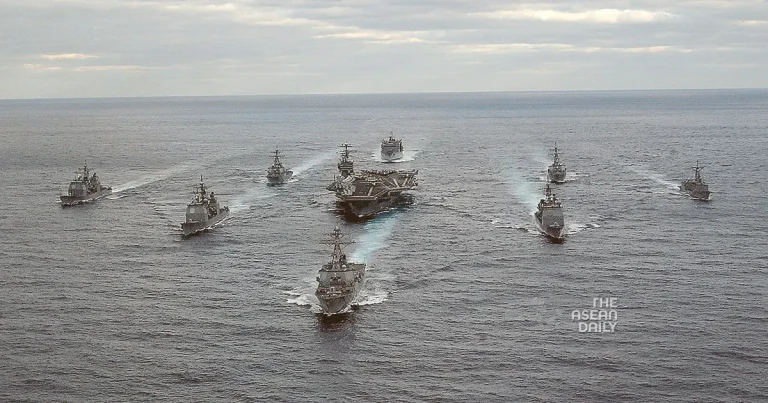21-3-2024 (MANILA) In an unprecedented move aimed at asserting maritime claims in the contentious South China Sea, the annual Balikatan military exercises between the Philippines and the United States will extend naval drills beyond the country’s territorial waters into the West Philippine Sea next month. For the first time in 39 years, the joint drills will venture into international waters patrolled by Chinese vessels.
The “group sail” will witness the Philippine Navy, US Navy, Philippine Coast Guard and US Coast Guard conducting manoeuvres alongside the French Navy in areas where Beijing’s military and coast guard ships have routinely blocked Philippine resupply missions to the BRP Sierra Madre ship on Ayungin Shoal. This falls within the Philippines’ exclusive economic zone (EEZ), though China stakes expansive claims.
While Australia and Japan will not directly participate, they will send observers to monitor the unprecedented drills demonstrating the robust US-Philippine alliance. “We’ve done group sails before, but previous exercises were limited to just 12 nautical miles. Now, we are venturing outwards,” stated Colonel Michael Logico, Balikatan’s executive agent.
According to Logico, the French Navy will deploy a frigate for the early Balikatan stages from late April to early May. At least four Philippine ships will join freedom of navigation operations legitimising the country’s EEZ claims. “The message is that we are serious about defending our territory, and we have allies. The alliance is still going strong,” he affirmed.
Logico stressed the exercises aim to deter escalation but leave the option for armed defence, if necessary. “It will be carried out with or without Chinese vessels, as it’s a demonstration of our combat readiness.” He noted the shift towards “external defence” since 2018, asserting the Philippines’ right to operate within its EEZ during the drills.
This year’s Balikatan will involve around 11,000 American personnel alongside 5,000 Filipino troops engaged in civil assistance projects across the nation. Other events include information warfare exercises, ship-sinking drills mirroring 2022’s off Zambales, and participation from over a dozen observer nations.
The rising tensions reflect the South China Sea dispute’s growing threat, admitted President Ferdinand Marcos Jr. However, he insisted the Philippines avoids instigating conflicts and seeks dialogue to keep tensions “manageable”, despite China’s territorial incursions.
On the decades-old US-Philippine Mutual Defense Treaty’s applicability, Marcos clarified it covers only “existential threats”, though he left open its precise modern interpretation regarding the Sea’s disputed areas. Ultimately, he underscored Manila’s commitment to resolving the long-simmering maritime row peacefully alongside its allies.




